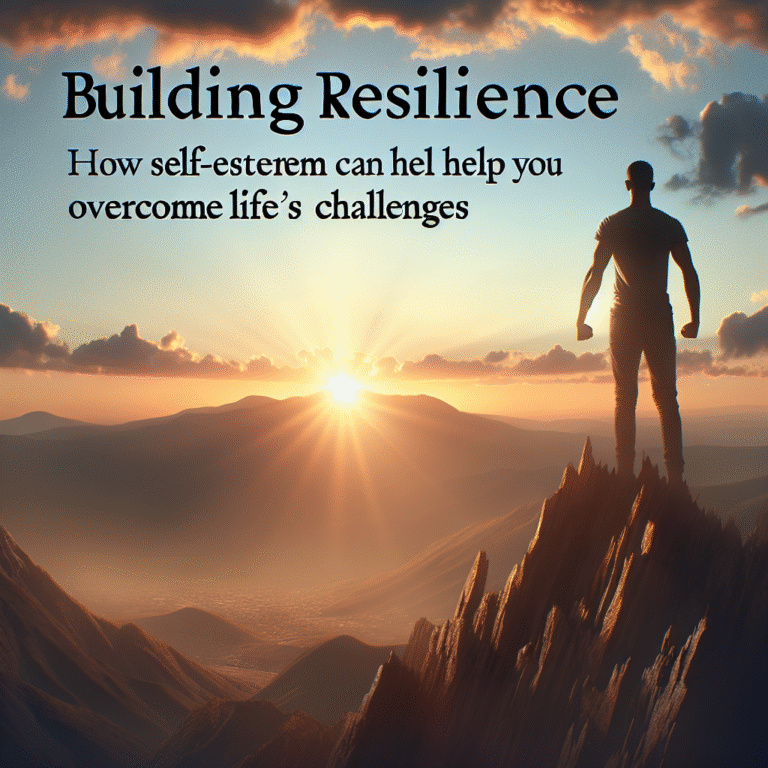
Introduction
Life is a rollercoaster—full of unexpected ups and downs, challenging partnerships, and relentless stressors. In the relentless pursuit of happiness and success, we often encounter adversity that tests our limits. The good news? We all possess the potential to cultivate resilience, a vital skill that allows us to navigate life’s storms effectively. This article delves deeply into The Resilience Toolbox: Strategies for Thriving in Adversity, offering unique insights, practical strategies, and inspiring case studies. Whether you’re facing a personal crisis, workplace challenges, or global uncertainties, this toolkit is designed to empower you to not just survive but flourish in the face of adversity.
Understanding Resilience
What is Resilience?
Resilience is not merely the ability to bounce back; it’s about growing through adversity, adapting to challenges, and learning from your experiences. It’s a complex interplay of mental, emotional, and social factors that enable individuals to face difficulties head-on.
The Science Behind Resilience
Research in psychology shows that resilient individuals often share common traits—such as optimism, emotional regulation, and strong social networks. These traits can be developed and strengthened over time, making resilience a skill rather than an inherent trait.
The Resilience Toolbox: Core Strategies
1. Positive Mindset Development
A positive mindset is foundational to resilience. It shapes your perception of challenges and the way you respond to them.
Case Study: The Power of Affirmations
Take the story of Maya, a marketing executive who faced unexpected layoffs at her company. Instead of succumbing to fear, she turned to daily affirmations that reinforced her self-worth and capability. Over the next few weeks, she not only found new employment but also gained the confidence to pursue her passion for entrepreneurship.
Analysis: Affirmations can cultivate a more positive outlook, making it easier to constructively process adversity.
2. Building Strong Connections
Social support is one of the most significant factors in resilience. Cultivating strong relationships can provide a buffer during tough times.
Table: Impact of Social Support on Resilience
| Type of Support | Benefits |
|---|---|
| Emotional Support | Offers comfort and reassurance |
| Informational Support | Provides guidance and resources |
| Instrumental Support | Practical help during crises |
Case Study: Community Resilience
In the wake of a natural disaster, communities often come together to support each other. One town in the Midwest rallied to rebuild homes after a tornado, demonstrating how social networks can foster resilience and quick recovery.
Analysis: Strong connections not only offer immediate support but also foster a sense of belonging, enhancing overall well-being.
3. Embracing Change
Change is often a source of stress, but embracing it can reframe your perspective.
Transitions and Growth: A Personal Example
Consider John, a high school teacher who adapted his teaching methods during the pandemic. By embracing online teaching tools, he discovered new ways to engage students and even improved his overall teaching efficacy.
Analysis: Embracing change can lead to unforeseen opportunities for growth and innovation.
4. Effective Problem-Solving Skills
Resilient individuals approach challenges with a problem-solving mindset, viewing setbacks as opportunities for learning.
Table: Problem-Solving Steps
| Step | Action |
|---|---|
| Identify the Issue | Acknowledge the problem at hand |
| Brainstorm Solutions | Generate potential solutions |
| Evaluate Options | Consider pros and cons of each option |
| Implement & Reflect | Act on a solution and assess the outcome |
Case Study: Engineering Success
When faced with budget cuts, a nonprofit organization leveraged innovative problem-solving strategies to streamline operations while preserving its mission. This adaptability not only saved jobs but also strengthened the organization’s impact.
Analysis: Effective problem-solving can transform adversity into a catalyst for change.
5. Mindfulness and Stress Management
Mindfulness practices can foster resilience by reducing stress and enhancing emotional regulation.
The Impact of Meditation
Research indicates that regular meditation can lead to increased emotional stability and improved focus. Participants in a mindfulness program reported feeling more grounded and less reactive to stressors in their lives.
Analysis: Mindfulness can serve as a powerful tool in The Resilience Toolbox: Strategies for Thriving in Adversity, enabling individuals to remain calm under pressure.
6. Setting Realistic Goals
Goal-setting is crucial to fostering a sense of purpose, giving you direction as you navigate challenges.
SMART Goals Framework
Utilizing the SMART criteria (Specific, Measurable, Achievable, Relevant, Time-bound) can clarify your objectives and enhance motivation.
Case Study: The Runner’s Journey
Lisa, an aspiring marathon runner, started with small, manageable goals that eventually led to her completing her first marathon. Each accomplishment fueled her motivation and resilience.
Analysis: Clear goals can provide a structured path through adversity, enhancing both focus and motivation.
Inspirational Stories of Resilience
1. Nelson Mandela: A Lesson in Perseverance
Mandela’s 27 years of imprisonment did not diminish his spirit; instead, it strengthened his resolve. Upon his release, he played a crucial role in dismantling apartheid and fostering reconciliation in South Africa.
2. Malala Yousafzai: Standing Up for Education
After surviving an assassination attempt by the Taliban, Malala became a global advocate for education. Her resilience in the face of personal danger has inspired millions worldwide.
Conclusion: Embrace Your Resilience Journey
In life’s unpredictable journey, developing resilience is not just about surviving; it’s about thriving amid adversity. The strategies outlined in The Resilience Toolbox: Strategies for Thriving in Adversity offer valuable insights that empower individuals to face challenges head-on. Whether through embracing change, building strong connections, or practicing mindfulness, you have the tools necessary to transform adversity into opportunity.
Take Action!
Today, take a small step towards resilience by reflecting on what strategies resonate with you. Embrace the mindset that challenges are stepping stones, and make the commitment to thrive rather than simply survive.
FAQs
1. What is resilience?
Resilience is an individual’s ability to adapt and bounce back from adversity, transforming challenging experiences into opportunities for growth.
2. Are resilience skills innate or developed?
While some individuals may have a natural inclination towards resilience, it is primarily a skill that can be developed through practice and experience.
3. How can I build a positive mindset?
You can build a positive mindset through regular practices such as affirmations, gratitude journaling, and surrounding yourself with supportive people.
4. What role does social support play in resilience?
Social support is crucial for building resilience as it provides emotional, informational, and practical assistance during tough times.
5. Can mindfulness really help with stress management?
Yes, research supports that mindfulness practices, such as meditation, help manage stress and enhance emotional regulation, contributing to greater resilience.
By understanding and leveraging the strategies in The Resilience Toolbox: Strategies for Thriving in Adversity, you empower not only yourself but those around you to face challenges with courage, strength, and hope. Your resilience journey starts today; embrace it!
















